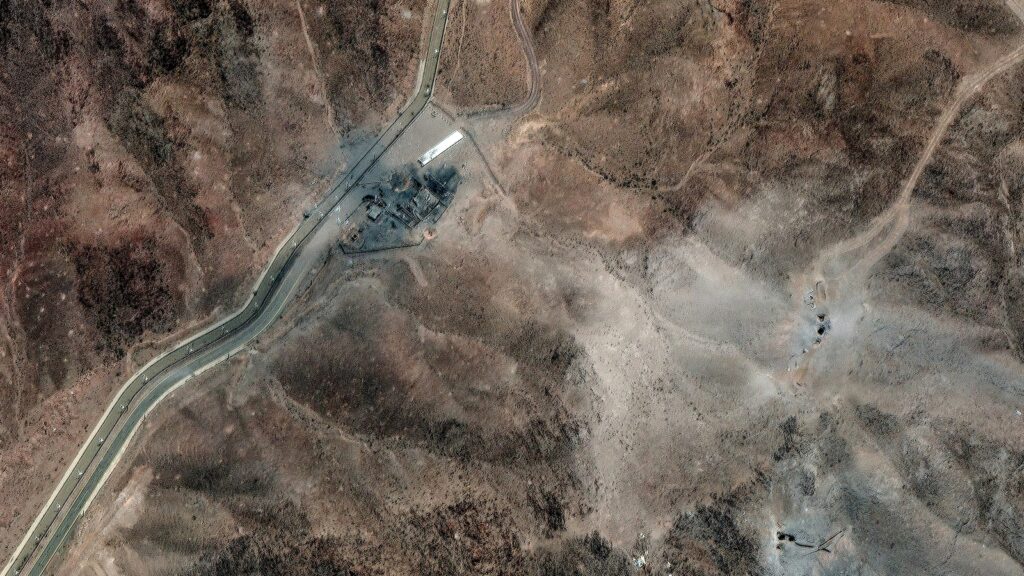
Hackers affiliated with Iran have launched cyberattacks on U.S. financial institutions, defense contractors, and energy companies following American military strikes on Iranian nuclear facilities. The strikes, which targeted the Fordo enrichment facility, have escalated tensions and prompted a digital offensive from Tehran’s supporters.
This development comes amid a fragile ceasefire between Iran and Israel, which analysts warn could unravel, potentially leading to more aggressive cyber warfare. The attacks, primarily denial-of-service in nature, have not yet caused widespread disruptions, but the threat remains significant, according to cybersecurity experts.
Escalating Cyber Threats
The U.S. strikes have intensified the cyber conflict, with experts suggesting that Iran, along with allies like Russia, China, and North Korea, may increase their investments in cyber capabilities. Arnie Bellini, a tech entrepreneur and CEO of Bellini Capital, highlighted the cost-effectiveness of cyber operations compared to traditional military engagements.
“We just showed the world: You don’t want to mess with us kinetically,” said Bellini. “But we are wide open digitally. We are like Swiss cheese.”
Two pro-Palestinian hacking groups have claimed responsibility for targeting over a dozen aviation firms, banks, and oil companies in response to the U.S. actions. These groups have utilized platforms like Telegram to coordinate and encourage further attacks.
Government Response and Preparedness
Federal authorities are on high alert for further cyber incursions. The Department of Homeland Security issued a public bulletin warning of increased Iranian cyber threats, while the Cybersecurity and Infrastructure Security Agency (CISA) urged critical infrastructure operators to enhance their defenses.
Despite lacking the sophisticated cyber capabilities of nations like China or Russia, Iran is known for its disruptive cyber activities, often aimed at stealing secrets or sowing chaos. The potential for independent hacking groups to act on Iran’s behalf remains a concern.
Historical Context and Recent Incidents
Iran’s cyber activities have a history of causing significant disruptions. Following the October 2023 attack by Hamas on Israel, hackers manipulated an emergency alert app, falsely warning of an incoming nuclear missile, illustrating the psychological impact of such operations.
“It causes an immediate psychological impact,” said Ziv Mador, vice president of security research at Trustwave’s SpiderLabs. “Economic disruption, confusion, and fear are all the goals of such operations.”
Iran’s attempts to spy on foreign leaders, including efforts to hack former President Donald Trump’s campaign, underline the persistent threat posed by Tehran’s cyber operations.
Implications for U.S. Cybersecurity
The current geopolitical tensions underscore the need for robust cybersecurity measures. However, the Trump administration’s budget cuts to cybersecurity programs have raised concerns about America’s digital defense capabilities. CISA has faced staffing reductions, and funding for state and local election security has been slashed.
Experts like Jake Williams, a former NSA cybersecurity specialist, caution against underestimating Iran’s intelligence-gathering efforts, which may focus more on espionage than destructive attacks.
“It’s fairly certain that these limited resources are being used for intelligence collection,” Williams noted, emphasizing the strategic focus on understanding U.S. and Israeli plans.
Future Directions and Strategic Investments
Investments in cybersecurity are crucial, as demonstrated by Israel’s sophisticated cyber espionage capabilities used in recent strikes on Iran. Expanding America’s cyber defenses will require both educational initiatives and technical advancements to secure vulnerable networks.
Bellini, who recently donated $40 million to establish a cybersecurity center at the University of South Florida, emphasized the ongoing nature of cyber warfare.
“It’s Wile E. Coyote vs. the Road Runner,” Bellini said. “It will go back and forth, and it will never end.”
As the digital arms race continues, the U.S. must prioritize cybersecurity to protect its critical infrastructure and maintain national security.






